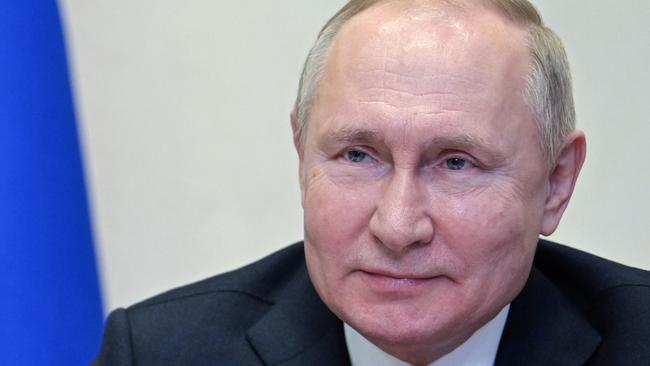Putin’s move on Ukraine matters to us too

Let’s start by having a clear understanding of what the international community is facing. Contrary to some commentary – and Putin’s own talking points – Ukrainians do not see themselves as Russia’s “little brother”, nor do any significant number of them desire to be a part of Russia under some form of political or constitutional arrangement.
Many Ukrainians – particularly in the nation’s troubled east – do view themselves as being of Russian ethnicity. But successive elections and polls since Ukrainian independence in 1991 have yielded poor support for pro-Moscow parties and policies, underscored by the Ukrainian state withstanding for the past seven years Putin’s manufacturing of armed separatists in its east.
It also is asserted sometimes that Ukraine is a poor example of democracy and, therefore, seemingly not worthy of international support. True, it has been plagued by official corruption and oligarchs dominating its politics and economy. But it’s difficult to see how a perfect democracy and market economy could have emerged smoothly after independence within such a weakened state, and while finding itself overwhelmingly dependent on its former master.
Ukrainians, however, particularly young Ukrainians, are determinedly aspirational and have fought hard to establish a democratic state, as witnessed by the so-called colour revolutions of 2004 and 2014.
Perhaps more notably, however, Ukrainians – like so many in other former Soviet states – have rejected emphatically the results of Russian dominance of their affairs. From the devastating famine induced by Joseph Stalin in the 1930s to Moscow’s intended concealment of Chernobyl and Putin’s ongoing attempts to dismember the current Ukrainian state, Ukrainians possess a bleak view of what it means to be under the Russian yoke.
Yet, despite these realities, Putin has pushed on. Among his key justifications has been the supposed threat to Russian security should Ukraine be admitted to NATO, and the alleged spectre of US ballistic missile systems being deployed along Russia’s borders with Ukraine.
To be sure, no leader of any country would be relaxed about adversaries developing the capability to potentially deploy advanced military systems. But Putin’s record suggests his assertions need to be assessed with scepticism. Could it be that the man who famously described the collapse of the Soviet Union as “the greatest geopolitical catastrophe of the 20th century” might be working towards the restoration of that entity’s status and influence? Certainly the effort and resources he has invested in rebuilding the Russian military and trying to make Russia a seemingly indispensable part of various conflicts – from the Middle East and northern Africa to northeast Asia – would seem to indicate it.
So what to do? At this point, it’s not clear whether Putin will move. But such a concerning history suggests an implicit risk that he will seize as much of an advantage however and wherever he can. It’s noteworthy that the Baltic States moved recently to provide Ukraine with (US-made) antitank and anti-aircraft missiles.
More broadly, Putin will be assessing what the West’s reactions to his latest activities mean for its overall cohesion, and the opportunities it will provide for deeper exploitation of internal differences. There is an eerie similarity with China’s grey-zone activities and incursions with Taiwan.
As daunting as it is, only robust and united diplomacy from NATO leading to a clear Russian understanding of the penalties at stake for any aggression might circumvent the situation. Australia may not want this to occupy too much US focus, but neither should we underestimate what neglect by NATO might mean for the credibility of the global rules-based order.
For these reasons we also should not underplay Australia’s role. Our own vast security challenges and limited resources preclude the provision of significant military support. But we have more skin in the game than we might realise. We should be vocal and active.
Doug Trappett was Australian ambassador to Ukraine from 2014 to 2016.


Australians have heard much in recent years about the need to safeguard the international rules-based order to protect not only our own but also global peace and security. What are we to make, therefore, of Russian President Vladimir Putin’s latest threats and demands towards Ukraine and NATO?